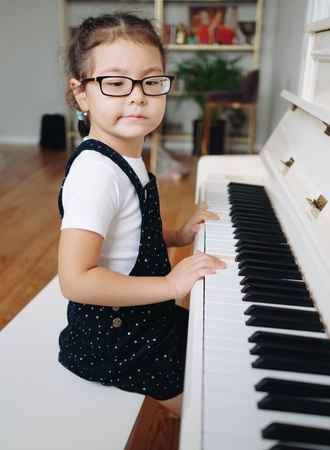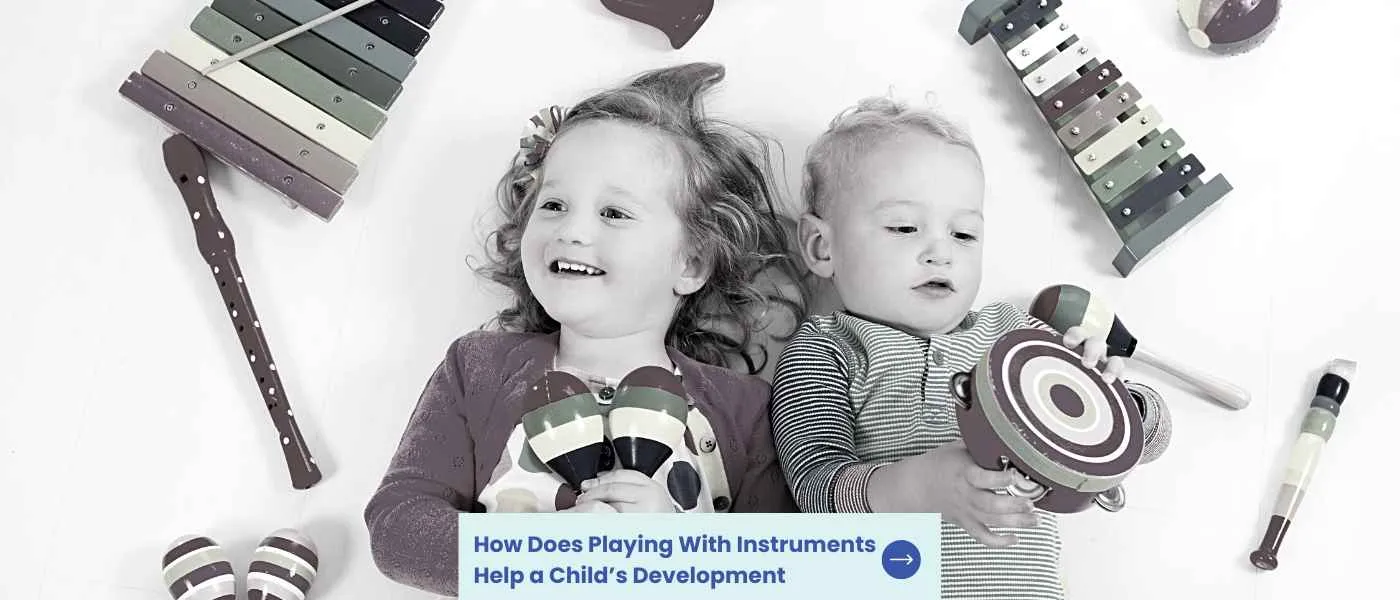Playing musical instruments can be a great way to help your child’s development. From improved cognitive abilities and motor skills, to increased self-confidence and creativity – there are many benefits for children who learn how to play an instrument. But does playing with instruments really help a child’s development?
In this blog post, we will explore the answer to that question as well as provide tips on types of musical instruments, choosing the right one for them, introducing music at home and more!
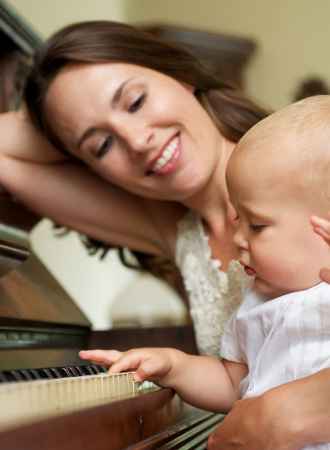
Key Takeaways on How Musical Instruments Help Brain Development
- Musical instruments can be an incredibly beneficial activity, as it helps to develop their cognitive, social and emotional skills.
- Playing musical instruments can provide a fun and engaging way for kids to develop and refine their sensory abilities.
- Choosing the right musical toy for your child involves considering their age, interests, safety, durability, and educational value.
Musical Instruments Benefits
Toddlers love to play music using different instruments, be it a toy xylophone or a toy drum. Playing musical instruments can have a profound impact on the development of kids. From cognitive to social and emotional benefits, music is an important part of any child’s growth.
- Music is a wonderful way to help improve a child’s listening skills, memory, reading skills, concentration, and problem-solving. Playing an instrument teach children to stay focused and disciplined.
- Playing with musical instruments also encourages creativity as it allows them to explore different sounds and rhythms while playing their favorite songs or composing their own pieces.
- Learning how to play an instrument with others is a great way for kids to build relationships with peers who share similar interests.
- Playing musical instruments requires physical coordination, which can help develop a child’s gross motor skills. Instruments such as drums or the guitar require the use of both hands and arms, promoting bilateral coordination and motor planning. Additionally, movements such as tapping feet or swaying to the rhythm can improve balance and coordination.
- As children grow, performing in front of audiences gives them confidence in themselves while allowing them the opportunity to focus on expressing themselves through artistry which builds self-esteem over time.
- Kids learn by doing and when they create music, they use both their auditory and motor skills, which can help with language development.
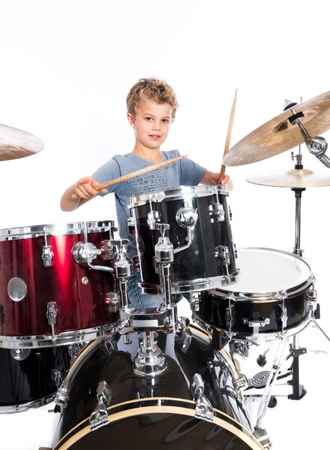
Types of Musical Instruments for Children
Here are the most popular musical toys for children:
- Stringed instruments are a great way to introduce children to music. These instruments come in many shapes and sizes, from small ukuleles to full-sized guitars.
- Percussion instruments are another popular choice among young musicians because they require no special knowledge of musical notation.
- Wind instruments provide an opportunity for children who have already developed basic musical abilities on other types of instruments such as piano or guitar but want something different.
Choosing the Right Instrument for Your Child
Musical toys can provide children with hours of entertainment while also encouraging their cognitive, motor, and creative development.
- Musical toys are designed for different age ranges. For example, some toys are suitable for infants, while others are more appropriate for toddlers or older children. Always choose a musical toy that is age-appropriate for your child to ensure that they can use it safely and get the most out of it.
- A musical instrument should be educational that help teach kids various lessons, so consider choosing toys that teach your child new skills. For example, some toys may help your child learn to count or recognize colors, while others may teach them about different musical instruments.
- Children are naturally creative, so look for toys that encourage their creativity. For example, a keyboard or drum set that allows children to create their own music or play nursery rhymes with a different sound.
- Musical toys should be well-made and durable to withstand the wear and tear of regular use. Check the materials used to make the toy, the quality of the construction, and read reviews from other parents to ensure that the toy is durable and long-lasting.
- Safety is a top priority when choosing toys for children. Make sure that the musical toy you choose does not have any small parts that could be a choking hazard, and check that it meets all safety standards.
- Choose a musical toy that matches your child’s interests. For example, if your child loves singing, a microphone or karaoke machine may be a good choice. If they are interested in different instruments, consider a toy that allows them to explore different sounds.
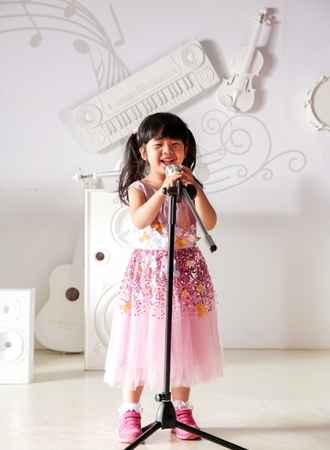
What Are the Sensory Developmental Benefits of Musical Instruments?
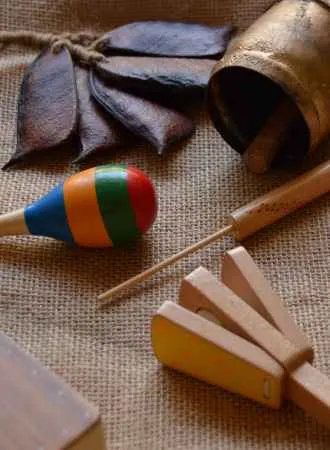
Research shows that music has even more developmental benefits than simply listening to it. Musical instruments can aid in the sensory development of a young child, including hearing, touch, and hand-eye coordination. Through the process of playing an instrument, children learn to distinguish between different sounds and pitches, which can improve their listening and auditory processing skills.
The physical act of learning how to play an instrument also engages their tactile sense, as they feel the vibration and texture of the instrument in their hands. Additionally, instruments that require precise finger movements, such as a piano or guitar, can improve hand-eye coordination and fine motor skills.
Does Early Music Education Help Accelerate Brain Development?
Early music instruction can have a positive impact on brain development in children. Making music using simple instruments can enhance cognitive skills such as memory, spatial reasoning, and language processing.
Exposure to music can also improve social skills and emotional intelligence in children. However, the extent to which learning music at a young age accelerates brain development is still debated among experts, and other factors such as socioeconomic status and parental involvement may also play a role in a child’s cognitive development.
Therefore, while early music class education can have benefits in child development, it is important to consider it as part of a larger approach to promoting cognitive and social development in children.
